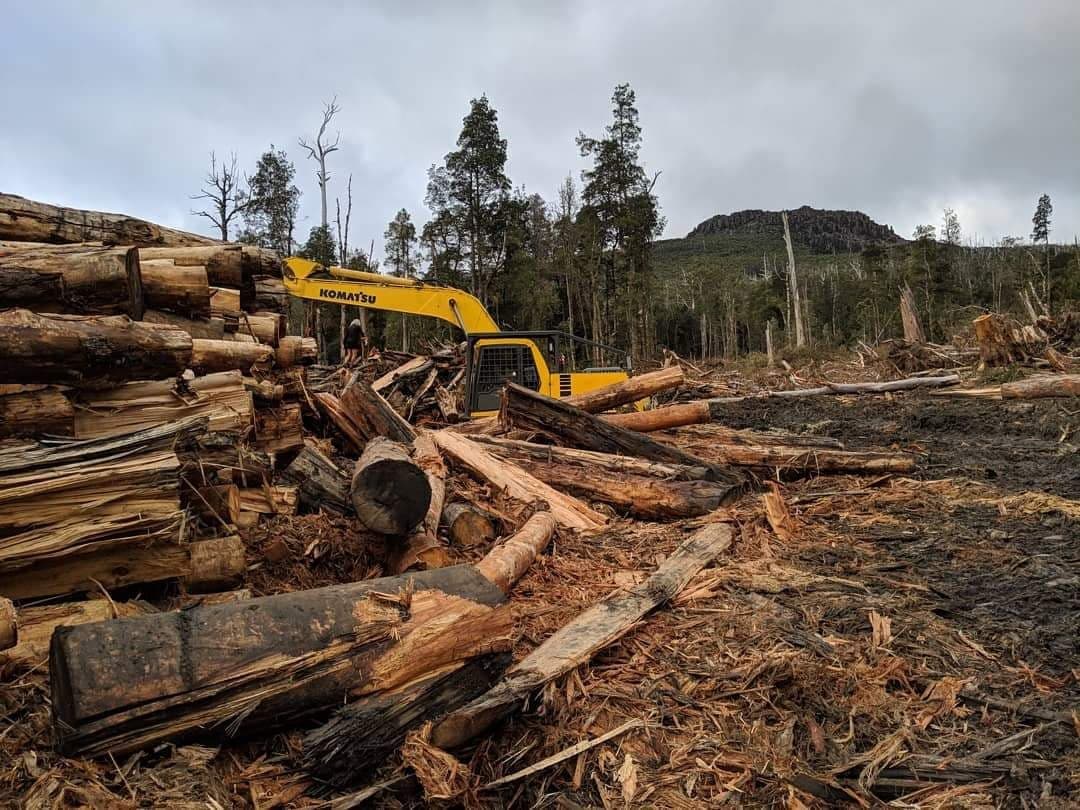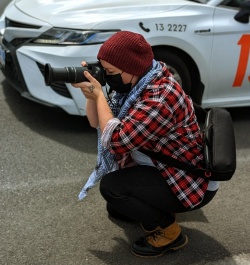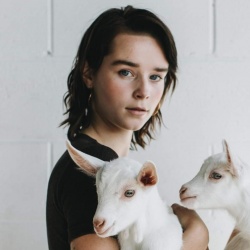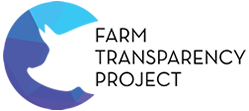News & Media > Editorials > Mother's Day: celebration or exploitation?
Mother's Day: celebration or exploitation?
On Mother's Day we say thank you to the mothers in our lives. But with the steady advance of consumerism, our celebration of mothers increasingly drives the exploitation of others, with disastrous results for human, non-human animals and the environment.
The Issues
 (Image: Food Empowerment Project)
(Image: Food Empowerment Project)
Humans:
- 70% of the global cocoa supply is sourced from West Africa, where children are trafficked into forced labour on cocoa farms; this is driven by a global demand for cheap chocolate. Companies such as Nestle and Mars cannot guarantee their suppliers are child labour free, and have opposed raising the price of cocoa to prevent child labour.
- 85-90% of sweatshop workers are women, who are denied maternity leave, healthcare benefits, safe working conditions and fair wages leaving them unable to feed or educate their children. Child labour is rife amongst sweatshops as is the exploitation of political prisoners. Many Australian companies rely on sweatshops for their products.
- Australian workers are increasingly experiencing poor conditions and wage theft. A 2019 KPMG report revealed wage theft in Australia totals over $1.35bn and affects over 1 million workers across multiple industries including manufacture, retail and hospitality.
Non-Human Animals:
- To produce milk a cow must birth a calf who is removed within the first 24 hours. If male the calf will be sent to slaughter; 750 000 calves are killed in Australian slaughterhouses every year. The milk is collected for human use, including chocolates gifted for Mother's Day, whilst the cows are denied their expression of motherhood. This cycle is repeated throughout the cow's life until they are no longer producing commercially viable quantities of milk, and she is sent to slaughter.
- Over 12 million hens are used to produce eggs in Australia. All egg farms, including cage-free and free-range, source hens from hatcheries; here parent birds are kept in sheds to produce fertilised eggs which are collected to be hatched in incubators. The hens will never hatch or raise their own chicks. The chicks are sorted at birth into male and female. The females are debeaked then sent to be raised in pullet sheds; the males are macerated live. The hens live short lives producing eggs including those eaten for Mother’s Day breakfast in bed, and once commercially unviable are sent to slaughter.
- Sheepskins used by popular footwear companies such as Ugg (highly popular gifts for Mother's Day) are co-products of the meat industry. Over 20 million lambs and 10 million sheep are slaughtered for flesh and skins in Australia every year, and over 15 million lambs die from exposure within the first 48 hours of life during winter lambing. Many ewes themselves will die from complications relating to pregnancy and birth.

Environment:
- Not all wrapping paper is recyclable due to dyes and laminates. And much of that wrapping paper is made with pulp sourced from native and old-growth forests. Every year an area of forests the size of the UK is destroyed, and old-growth forests (which are important carbon stores) continue to disappear globally.
- Four multinational companies alone (Coca-Cola, Nestle, PepsiCo and Unilever) produce half a million tonnes of plastic, which is dumped in Brazil, Nigeria, Mexico, India, China and the Philippines to be burned, generating 4.6 million tonnes of C02 every year. Almost every gift on Mother's Day will contain plastic packaging which will then be sent to landfill or overseas to be burned.
- Inside all the wrapping paper and packaging is a gift that may not be wanted. Australians spend over $130m on Mother's Day gifts every year, many unwanted, creating resource wastage and a landfill crisis with a heavy ecological price tag.
It doesn't have to be this way. Below are ethical gift options if you still wish to treat a mother you know but don’t wish to do so at the expense of the rights of others. Or conversely, we could all simply give the most valuable gift of all; our love.
Ethical Gift Ideas:
Chocolate
- https://pana-organic.com/product-category/gift-hampers
- https://lovingearth.net/our-products/mylk-giftbox.html
- www.foodispower.org/chocolate-list/
Low Waste Cosmetics & Skin Care
Something Cosy
- Organic bamboo bathrobe: www.ettitude.com.au/products/waffle-bathrobe
- Handmade Australian cotton blanket: www.etsy.com.au/listing/802019911
Sanctuary or Wild Animal Conservation Sponsorship
- Big Ears Animal Sanctuary: www.bigearsanimalsanctuary.com/sponsorship
- Edgar's Mission: https://bestfriends.edgarsmission.com.au/signup
- World Wildlife Fund: www.worldwildlife.org
- Oceanic Society: www.oceanicsociety.org
References
www.washingtonpost.com/graphics/2019/business/hershey-nestle-mars-chocolate-child-labor-west-africa
https://foodispower.org/human-labor-slavery/slavery-chocolate/
www.dosomething.org/us/facts/11-facts-about-sweatshops
www.abc.net.au/news/2019-07-15/uyghur-forcrd-labour-xinjiang-china/11298750
www.baptistworldaid.org.au/resources/2019-ethical-fashion-guide
www.thenewdaily.com.au/finance/work/2020/02/21/wage-theft-analysis
www.tearfund.org/en/about-you/action/rubbish-companies-action
www.earthgreetings.com.au/earth-greetings-paper-printing-and-the-environment




